While they are universally popular with consumers and easy for bakers to make, demand for premium and healthier options means your traybakes need to stand out from the crowd
Great British Bake Off presenter Prue Leith got people talking this summer when she dismissed a below-standard bake as “just not worth the calories”.
But while Leith got her fair share of criticism for mentioning the c-word, she was tapping the zeitgeist as many consumers are becoming more health-conscious and treating themselves less often. However, when they do, they want that treat to be properly indulgent.
In such a climate, it makes sense for bakers to offer super-premium treats. A quick and easy crowd-pleaser, the traybake has become a ubiquitous bakery product, so offerings must stand out from the competition to avoid margins being eroded.
“Traybakes are an essential part of a baker’s repertoire as they are so popular with a variety of demographics and extremely easy for bakers to make,” says Margarethe Schneeweis, European category market leader for pastry mixes at CSM Bakery Solutions.
“Bakers are getting more creative, offering products such as blondies, hybrid brownies, no-bake cakes, and confectionery-filled rocky roads. Classic cakes are also being produced in traybake form, such as lemon drizzle slices, Bakewell slices or fruit cake.”
Using authentic ingredients is one of the secrets to success, according to Justine Carruthers, managing director of Traybakes Ltd in Penrith. “We only use branded products not imitations,” she says.
“We use Barry Callebaut chocolate and the best-quality nuts and seeds, and would use a real Mars bar, although we would not label it as such due to trademark issues.”
Products sold into the grab-and-go market must look attractive to appeal to customers in the first place, but must also be robust “so that you can shove in it your pocket with no trouble”, says Carruthers.
Carruthers’ bars typically sell for £1.50 to £1.80. “We have a margin we need to achieve and make it a viable proposition, but we are never greedy. A customer may buy a £2.50 bar, but not very often, so we try and stay under £2.”
The company’s most popular line is Caramel Shortcake, representing 17% of sales in its 10-strong range of ‘grab and go’ bars. Other best-sellers include honeycomb crunch, with Maltesers, and a white chocolate and dark chocolate brownie.
Consumers ‘eat with their eyes’, so products that can look plain, such as traybakes, need to offer maximum visual appeal, says Bakels marketing manager Michael Schofield.
Moreover, with chocolate and caramel seeing rapid growth in consumer popularity, showcasing them on products is a good way forward. The caramel ingredients market is forecast to grow by nearly 7% by 2021 (Markets & Markets, 2016), he says. Other emerging flavours include blueberries, raspberries, oats, seeds and crumble, Schofield says.
Jacqui Passmore, Dawn Foods marketing manager for UK and Ireland, suggests that flavour combinations such as salted caramel, millionaire, Oreo and Nutella tie in with indulgent trends.
The popularity of salted caramel has seen a surge in experimental sweet and savoury combinations says Louise Liddiard, marketing manager at decorations supplier Orchard Valley Foods Group. The company’s Chilli & Ginger Crunch adds a premium touch to a plain traybake, she suggests. Botanicals, such as its rose-flavoured fudge are also big for 2017.
Using innovative inclusions and ingredients such as these may help tip the scales towards making a traybake worth its calories.
Healthy slices and bakes
On the flipside of the trend for super-indulgent treats is demand for snacks that offer nutritional benefits alongside great taste.
Traybakes company Cakesmiths says demand for free-from, vegan, raw and low or no refined sugar options has increased significantly. Last year, research by IPSOSMori showed that the number of vegans had increased by 360% in 10 years, it says. The firm has expanded its vegan range from one to seven products in the past year, and its raw offering from one to three.
Cakesmiths ‘cake inventor’ Mike Smart adds: “Consumers are also becoming more discerning. As their palates change, they are choosing products with fewer or no refined ingredients that are less sweet. Cakesmiths has always stayed away from artificial ingredients, so our cakes fit the trend toward real ingredients.”
For consumers looking for a healthier option, traybakes offer a vehicle for lighter alternatives filled with fruit, seeds and nuts, for example, says Jacqui Passmore, marketing manager UK and Ireland for Dawn Foods. Refined sugar can be replaced with naturally sweet alternative such as maple syrup, fruit purées (such as banana and apple) and dates.
Flapjacks are particularly well suited to offer a healthier option as they can be mixed with muesli, nuts or fruit to create a premium treat, suggests Margarethe Schneeweis, category market leader at CSM Bakery Solutions
Of course, sugar reduction is a preoccupation for many other bakers at the moment. Public Health England is challenging bakers to cut sugar in cakes, biscuits and puddings by 5% this year and 20% by 2020. Its guidelines also suggest cakes, biscuits and pastries should all have a maximum of 325 calories per serving by 2020.
“It’s going to be a massive challenge for all bakers,” says Justine Carruthers, managing director of Traybakes Ltd. “Using sugar is beneficial for shelf life and gives a product caramelisation. In some recipes we can cut back on sugar, but then shelf life is still reduced. One option allowed under the guidance is to shrink the size of the product.”
Traybakes has yet to find a suitable alternative to sugar that is not synthetic. Carruthers has been experimenting with coconut nectar, agave syrup and prune molasses, but these are liquid and a crystallised product would be more user-friendly.
But whether sugar reduction is achieved through reformulation or alternative routes, traybakes are certain to see plenty of NPD over the next few years.



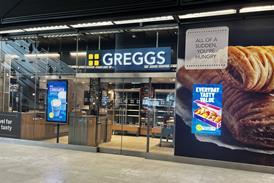
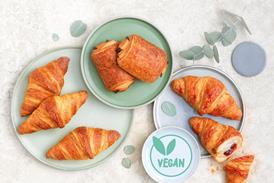
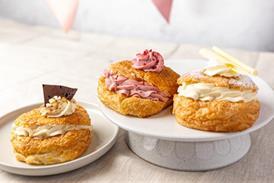
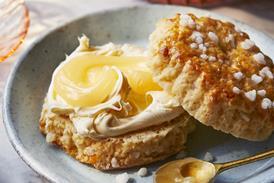
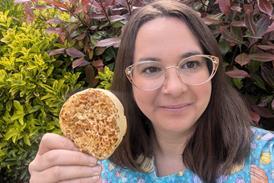
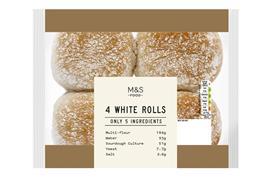
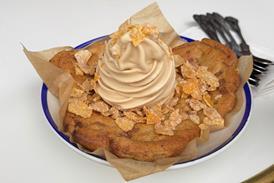
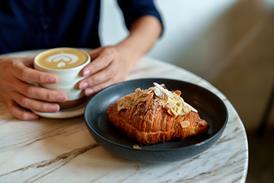

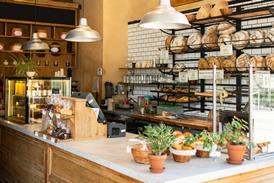



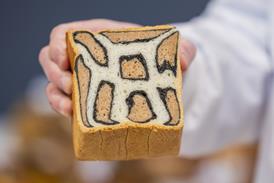
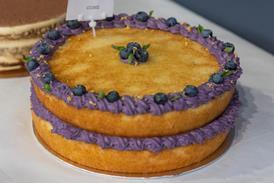
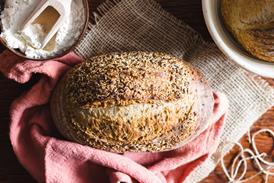

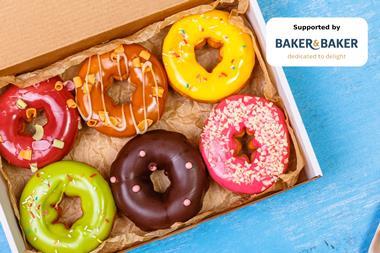
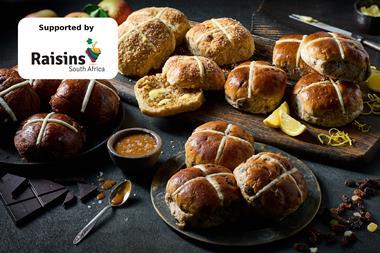

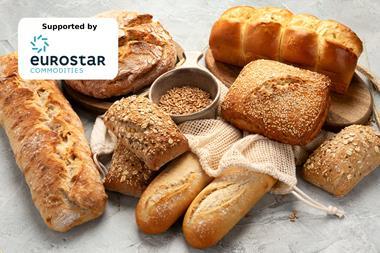
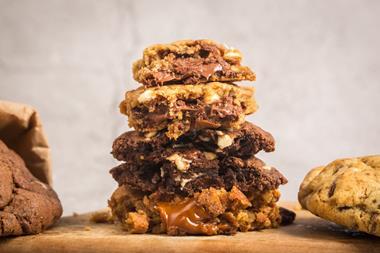





















No comments yet